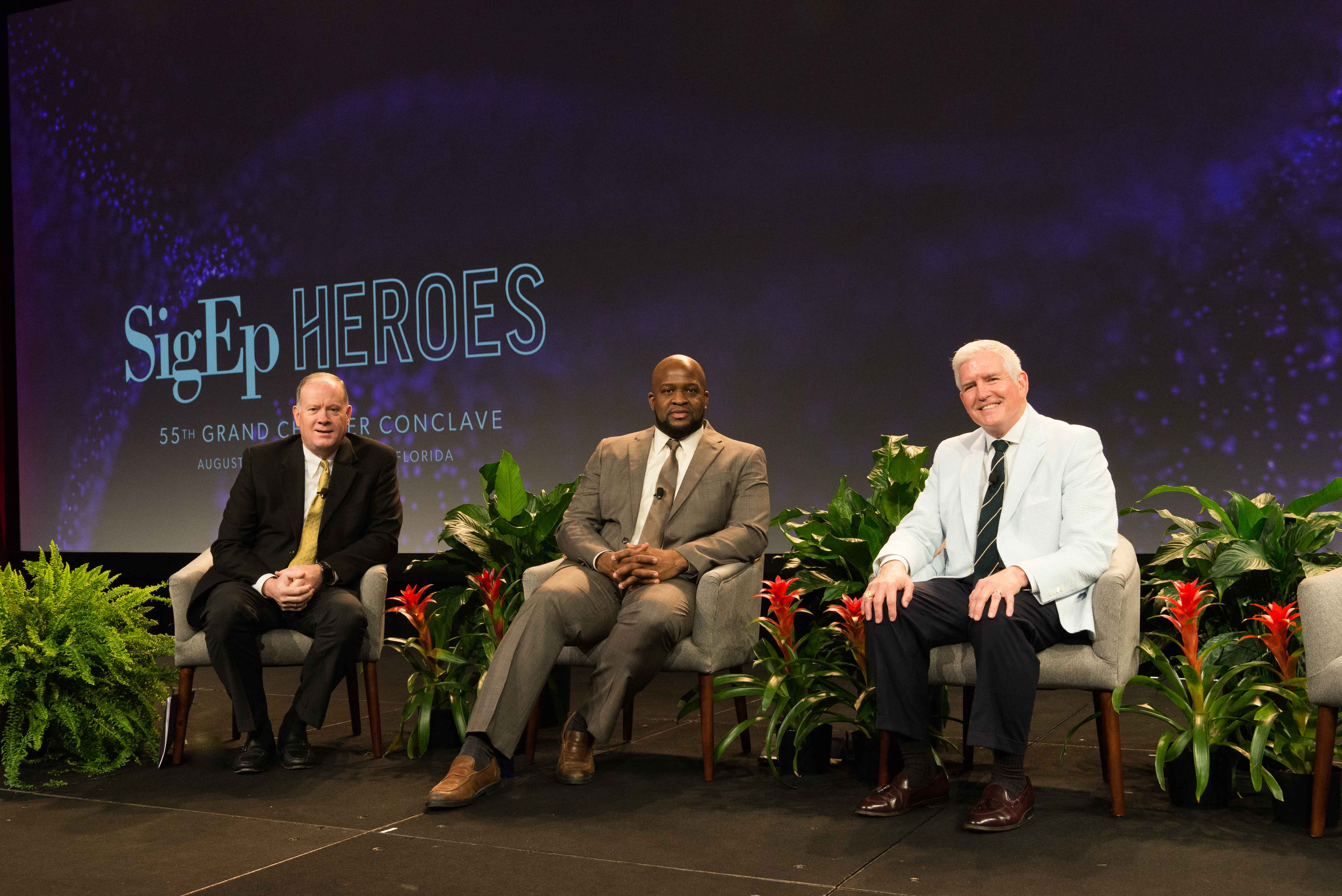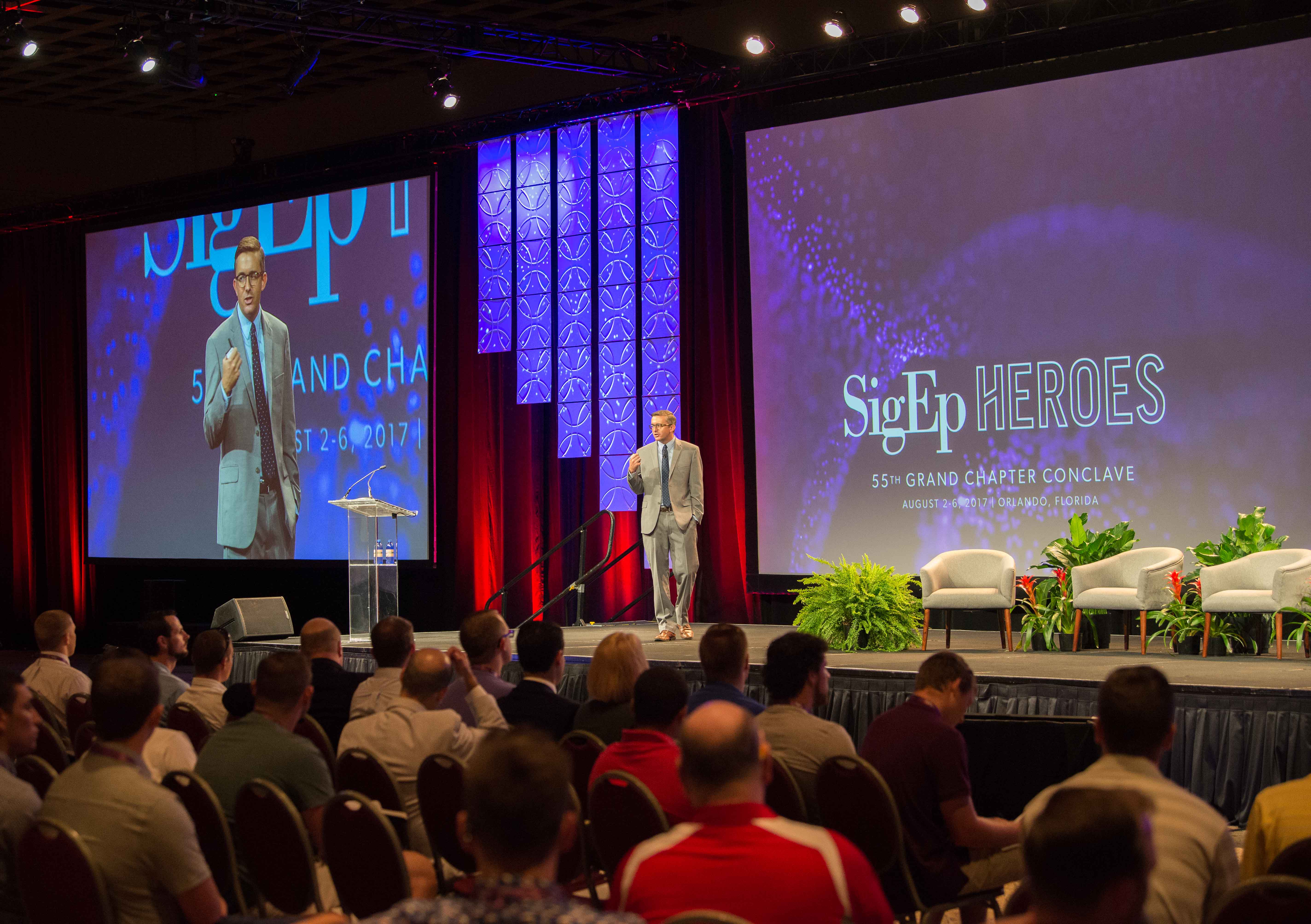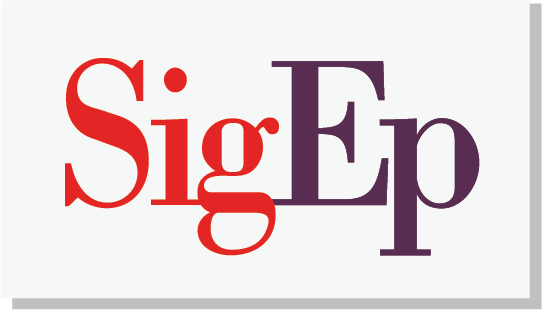Educational programming at the 55th Grand Chapter Conclave opened with four speakers from higher education discussing the current state of Greek organizations, the opportunities for chapters to strengthen university partnerships, and the real meaning of fraternal brotherhood.
“It is supposed to be a higher standard to be in your organizations,” said Allen Groves, J.D., dean of students at the University of Virginia. “How about we hold ourselves to a higher standard.”
In a panel conversation titled “Hero or villain? The story of fraternity today,” Groves was joined by Dr. David Grady, vice president for student affairs at the University of Alabama, and Dr. Darrell Ray, vice president of student affairs at the University of Memphis. Each member of the panel agreed about the power fraternities have to provide young men with tools they need for success in life and college. They also acknowledged the real challenges facing Greek organizations across the country.

“The perception of fraternities and sororities is shaped by television and movies,” Ray said. According to Ray, incoming students have never seen the community service and commitment of fraternity members, so those who would benefit from a positive Greek experience may be turned off by negative stereotypes.
When asked to comment on the pending Grand Chapter legislation to make SigEp chapter houses substance-free, Ray challenged those who may be opposed to truly consider why they object: “Our fraternity men seem to have the idea that they can’t have fun without alcohol.”
Grady, a member of Phi Gamma Delta, believes that Sigma Phi Epsilon may have an answer: “SigEp has always been on the leading edge of movements within the fraternity world. It is in your DNA to be different.”
In a session that preceded the panel discussion, Dr. Gentry McCreary, CEO and managing partner at Dyad Strategies, offered his own ideas about the opportunities SigEp chapters have to deliver on the promises they make to higher education and their members. McCreary’s ideas have been shaped by five years of research on the defining characteristic of fraternalism: brotherhood.

McCreary believes that the balance so integral to SigEp may be the key to a positive fraternity experience. He posited that there are four foundations of brotherhood: solidarity, shared social experience, belonging, and accountability. In McCreary’s research, solidarity is having one another’s back, generally a good characteristic. But chapters that place too much of an emphasis on solidarity can go too far to “build” this attribute and have a high tolerance for hazing.
Similarly, brotherhood built on shared social experience and camaraderie can be life-changing for the better. However, his research has shown that depending too much on shared social experiences can produce a chapter of brothers who care only about fun and are overly aware of social status.
McCreary suggested that a healthy emphasis on solidarity and shared social experience, balanced with two other attributes, accountability and a sense of belonging, can lead to true brotherhood. He argued that brotherhood is what defines a fraternity and urged attendees to ensure that their chapters are pursuing this balanced idea of brotherhood.









Charles G. Eberly says
Dr. McCreary’s pathfinding research exploring the concept of brotherhood within the context of the college fraternity is opening important new ways to understanding and working with undergraduate members. I am confident his presentation included all four ideas above, including belonging and accountability. I am familiar with his research and that he focuses on issues surrounding the ways in which undergraduates understand what “brotherhood” means in their experience.
What might have been missing from his presentation is that within Sigma Phi Epsilon the idea of “brotherhood” is not as significant as is the idea of “brotherly love,” as explained by our late Grand President Jack Wheeler. It is the idea of “brotherly love” which emphasizes the foundations of accountability within Sigma Phi Epsilon. Brotherly Love means holding men to their promises, and far more than shielding someone from accountability, as “brotherhood” in the form of “botherhood” is often misinterpreted. Brotherly Love means constantly supporting a brother who is facing hard personal choices due to his temptations. It means deflecting a brother from taking inappropriate actions with other persons, from drinking to excess and losing his ability to recognize bad risks, and helping him to develop new habits of behavior. It is this “Brotherly Love” which helps to make Sigma Phi Epsilon “different” in a positive and growth inducing way.
As we all reflect on what “Brotherly Love” means in our own lives, we as alumni must consider what we do to promote “Brotherly Love” among the undergraduate members we influence. Perhaps all of us can recall the song lyric, “I want to be just like you, Dad; I want to be just like you!” As we work with undergraduates, it is imperative that we recognize sharing stories about our own undergraduate excesses, or coming back to campus and reliving the social excesses on football Saturdays, sends a dark message to our undergraduate brothers. That message is that excessive drinking and egregious behavior is valued as an integral part of the “fraternity” experience. We, along with the undergraduates, must hold each other accountable to a higher standard. That “higher standard” is to conduct ourselves in front of our undergraduate mentees with greater prudence, with conscious awareness that we are constantly modeling the sort of appropriate behavior we want undergraduates to assimilate into their daily lives.
Bob Kerr says
Doc so agree with the need to temper the “war stories” that are often the focal point of alumni gatherings with undergraduates. The world is much different than when I was an undergraduate. Diligent research has expanded our knowledge of the rewards of moderation. The virtue of encouraging our undergraduate brothers to live better lives than we have is truly the opportunity to build a better world. To exercise brotherly love is a provocative behavior that can succeed in overcoming the hate and violence that surrounds our daily lives. It is difficult for most undergraduates to integrate the concept that raises all boats on a campus greek community. The mutual survival of greek communities is forged in the basic concept that as individual greek organizations we have more in common than we have differences. The world need us to evolve and evoke a different expectation of what it means to be greek.